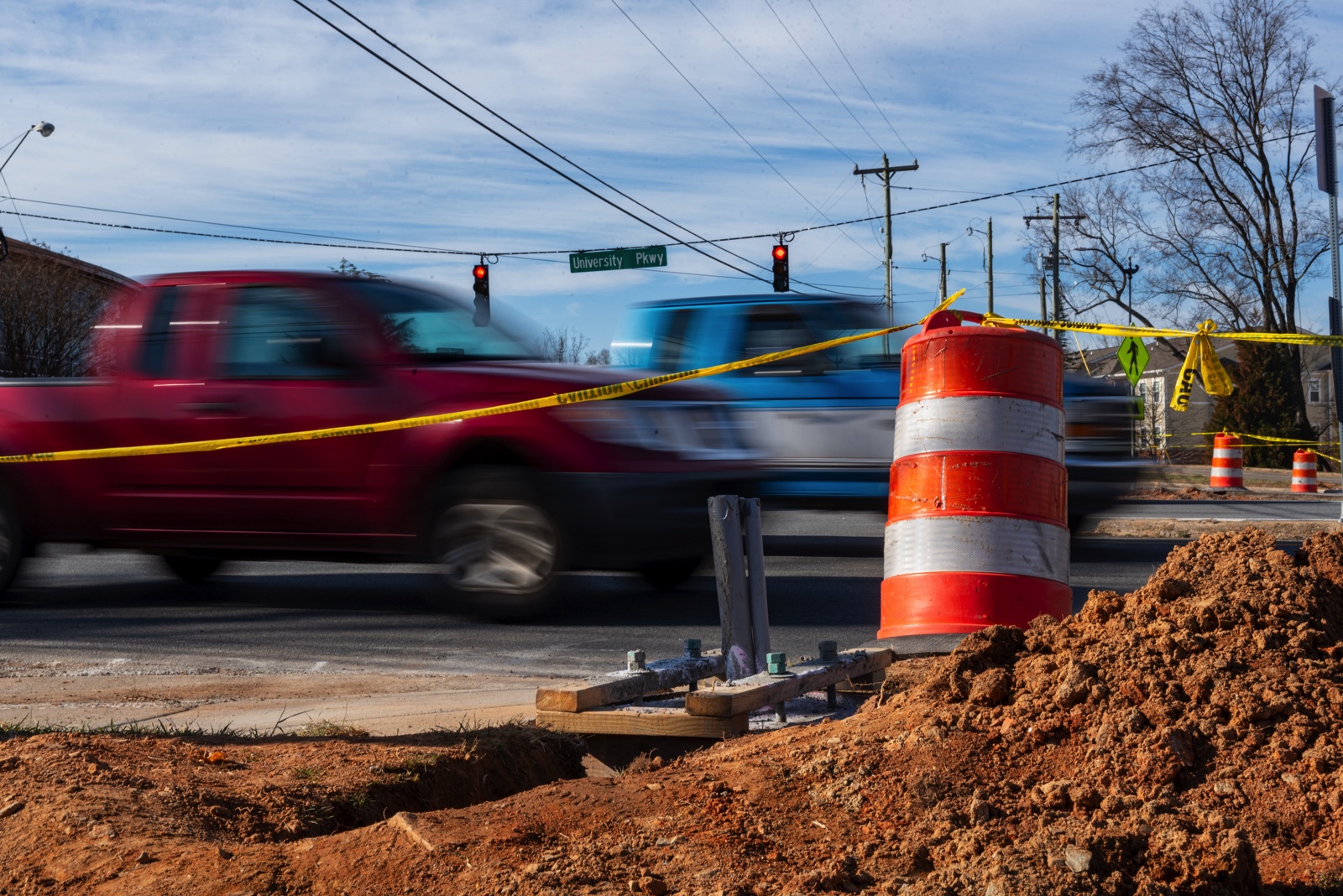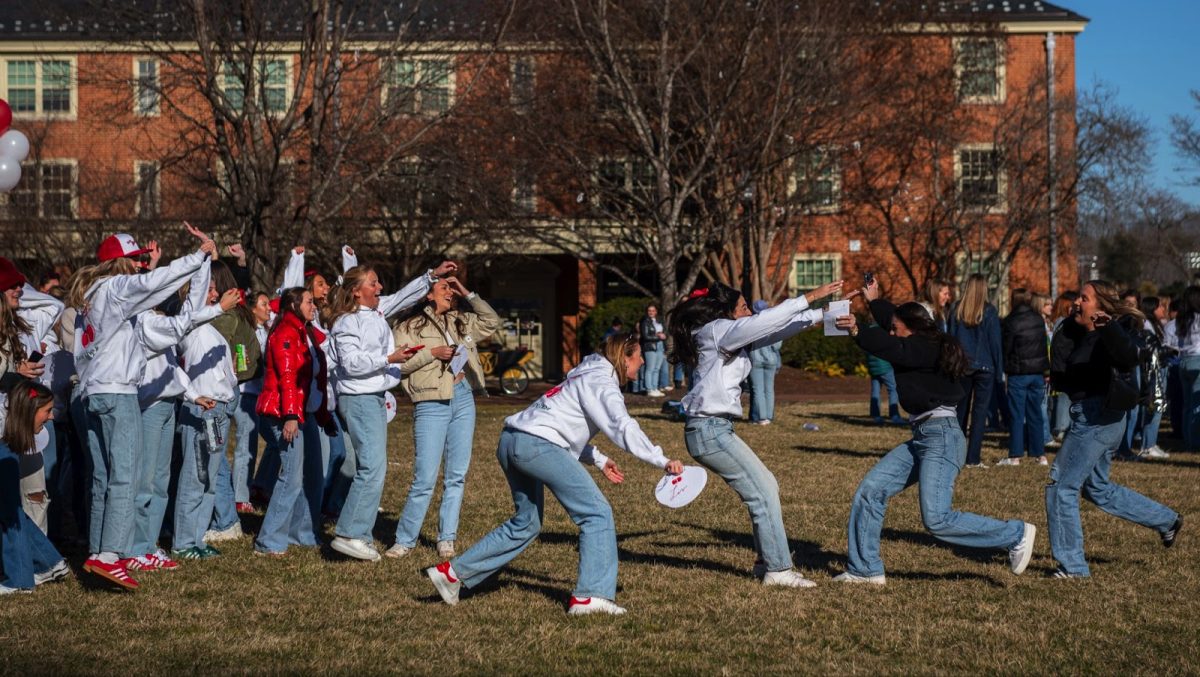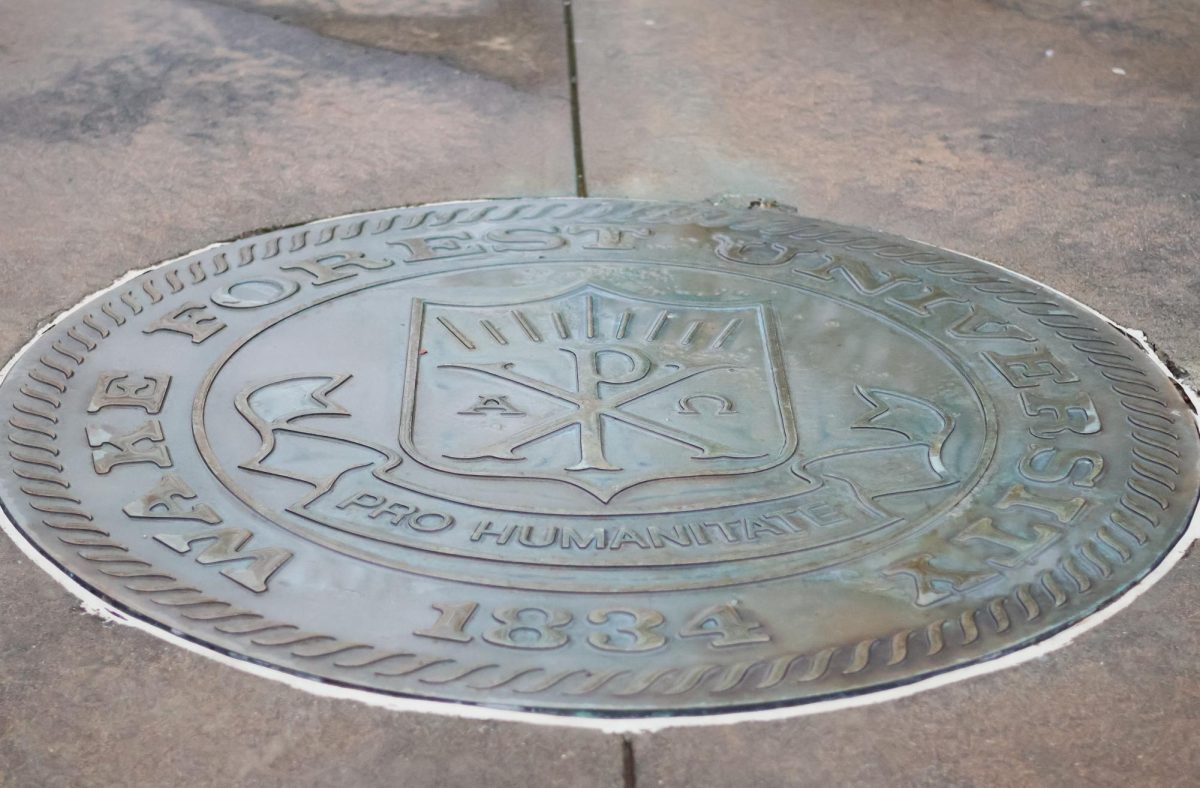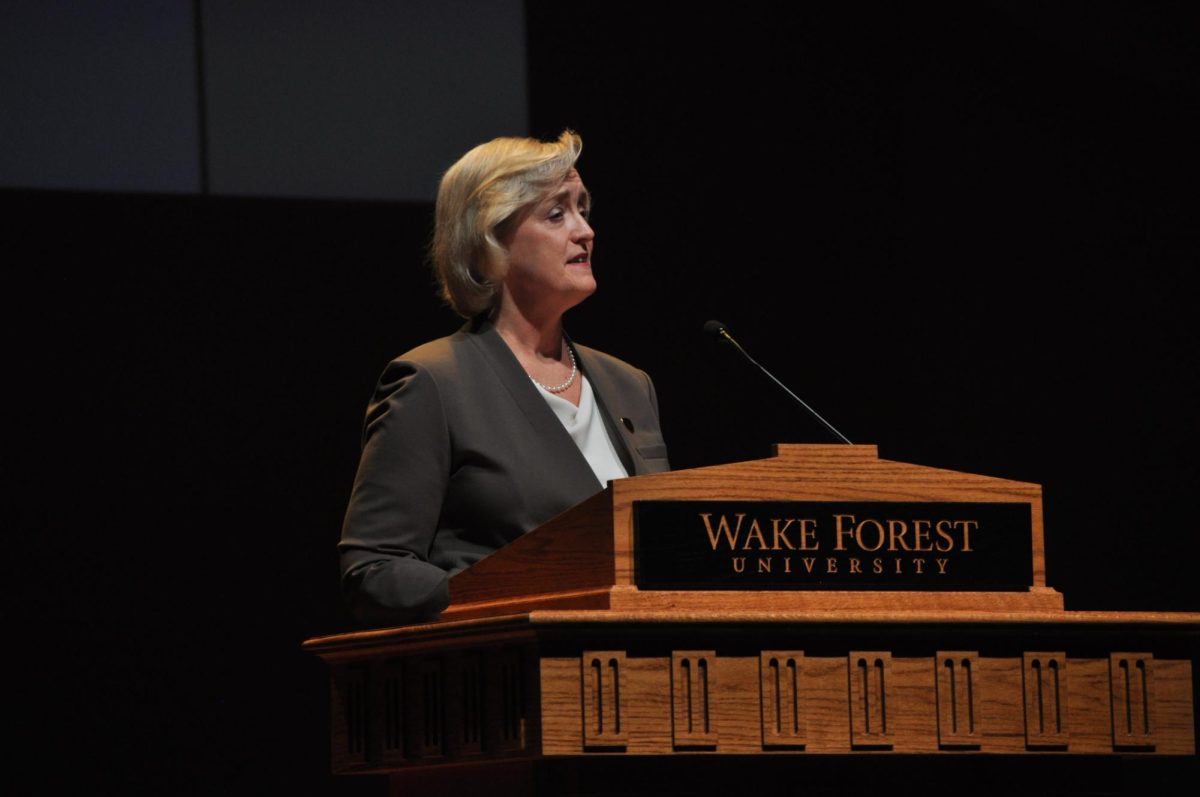It is no secret to those who have attempted to navigate beyond the iron gates of the Wake Forest campus on foot that the city of Winston-Salem is entirely unnavigable — and frequently dangerous — without the assistance of a motor vehicle.
Statistics support this observation.
According to Walk Score, an online tool that rates walkability and bikeability at addresses across the country, Winston-Salem’s average walk score is an abysmal 22 out of 100, with the website stating that “almost all errands require a car” and “Winston-Salem is a car-dependent city.” Bikeability is not much better. With an average score of just 29 out of 100, it’s abundantly clear that navigating the city on two wheels is much less feasible than four.
On the night of Friday, Jan. 26, this stark reality once again reared its ugly head when a Wake Forest student was hit by a car walking across University Parkway on Long Drive.
While the university, its students and the community have succeeded in advocating for a pedestrian crosswalk to be put in at the intersection of Long Drive and University Parkway to protect students walking to and from campus to off-campus events, improving walkability does not and should not stop at sidewalks and crosswalks in our neighborhood.
Advocacy to improve walkability in the city is long overdue and both Wake Forest students and city residents have a role to play.
According to data from the North Carolina Department of Transportation (NCDOT), 77 of 7,874 reported crashes in Winston-Salem in 2021 — or just under 1% — included pedestrians. However, this number is almost certainly underestimated because reported crashes are only those in which “a motor vehicle in transit on a roadway result[s] in death, injury or property damage of $1000 or more.” Thus, many minor pedestrian-involved incidents are likely not reported.
Food apartheid, or the lack of access to fresh, nutritional food based on purposeful racial zoning and human-built environments, is a widespread issue in Winston-Salem — particularly among the city’s residents of color and those of lower income.
In addition to accidents, pedestrian fatalities are also all too prevalent in the Camel City. According to NCDOT, nine pedestrian deaths were reported in Forsyth County in 2021 alone, while the county’s five-year average stands at six deaths per year.
Accidents are not the only indicator of a failing system, however. Many people undoubtedly don’t attempt walking at all due to the knowledge that many streets across the city lack both sidewalks and crosswalks — features that are certainly not a silver bullet to ensuring pedestrian safety on their own but are key tools to facilitating it.
Winston-Salem is not the only city in North Carolina that is ultimately inaccessible without a car. Of the 130 cities in the United States and Canada ranked by Walk Score, four of the 10 lowest-scoring cities are in North Carolina. Fayetteville ranks second worst behind only Chesapeake, VA., followed by Winston-Salem in third-to-last, Charlotte in sixth and Greensboro in ninth.
To walk from Wake Forest to the nearest grocery store, Lowes Foods on Reynolda Road, would take 32 minutes one way, according to Google Maps. While on-campus grocery store options like The Pod and 336 Market are available to students, they boast prices far above those offered at the grocery store, and many essentials aren’t available.
Groceries aren’t easily accessible to those seeking off-campus food at Wake Forest, but students do have access to dining options like the Pit, North Campus Dining Hall and Benson Student Center. Other Winston-Salem residents are not nearly as fortunate.
Food apartheid, or the lack of access to fresh, nutritional food based on purposeful racial zoning and human-built environments, is a widespread issue in Winston-Salem — particularly among the city’s residents of color and those of lower income.
Data collected by the U.S. Department of Agriculture in 2019 indicates that Winston-Salem is home to at least 20 census tracts where more than 20% of residents were considered low-income and lived greater than one mile away from the nearest supermarket. Most of these areas are located in the eastern part of Winston-Salem, which is primarily Black and low-income due to the effects of systemic racism like redlining and highway construction that divides the city.
Thus, walkability — as both a necessity and leisure activity — is intrinsically tied to racial justice.
If Winston-Salem is to become a more equitable, just, environmentally sustainable and healthy city, walkability must be prioritized. Wake Forest students have the opportunity — and perhaps responsibility — to assist in achieving this goal.
Fresh food access is just one of the many aspects that make walkable communities important. According to a series of 2021 articles from the Congress for New Urbanism’s Public Square journal, walkability improves a variety of facets of life, including physical health, social connectivity, economic productivity and environmental sustainability.
If Winston-Salem is to become a more equitable, just, environmentally sustainable and healthy city, walkability must be prioritized. Wake Forest students have the opportunity — and perhaps responsibility — to assist in achieving this goal.
Students should pressure state and local governments through petitioning, letter writing and attending community forums. We need to build more sidewalks, crosswalks and bike lanes (specifically grade-separated bike lanes) and reduce restrictive zoning laws currently in place that prevent multi-use development including grocery stores from being built in residential areas. Lastly, we must follow the lead of and support the work of local organizations like the SHARE Cooperative and Neighbors for Better Neighborhoods that reduce food insecurity and advance racial equity in the city.
While student voices are valuable within the community — and there is strength in numbers, particularly regarding policy choices like zoning and pedestrian projects — students must be sure to engage in larger community issues without overstepping.
Students living in the Wake Forest “bubble” must recognize their positionality as community members at a historically white institution before becoming involved in community projects. Overstepping on those already engaging in long-term, meaningful engagement in the community will only worsen the already tenuous relationship between the city and the university.
Walkability is an interdisciplinary issue that is plaguing Wake Forest and greater Winston-Salem community members alike. Activism to improve walkability is needed throughout the city and offers the opportunity for cross-community engagement and collaboration on multiple fronts, including accessibility, sustainability, economic viability, racial justice and more.
Failure to address Winston-Salem’s walkability crisis is tantamount to ignoring each of these issues, and the Wake Forest University community must act if it is serious about promoting solutions to each.














